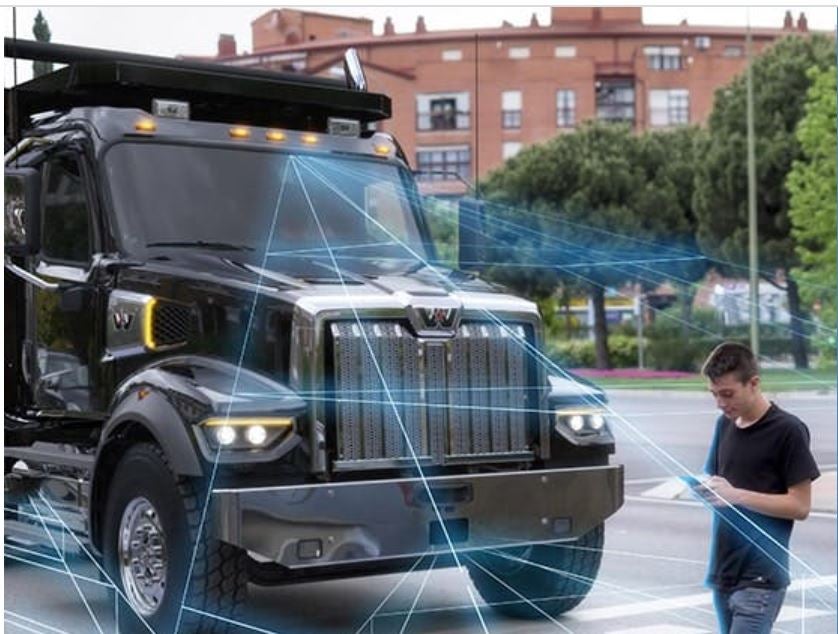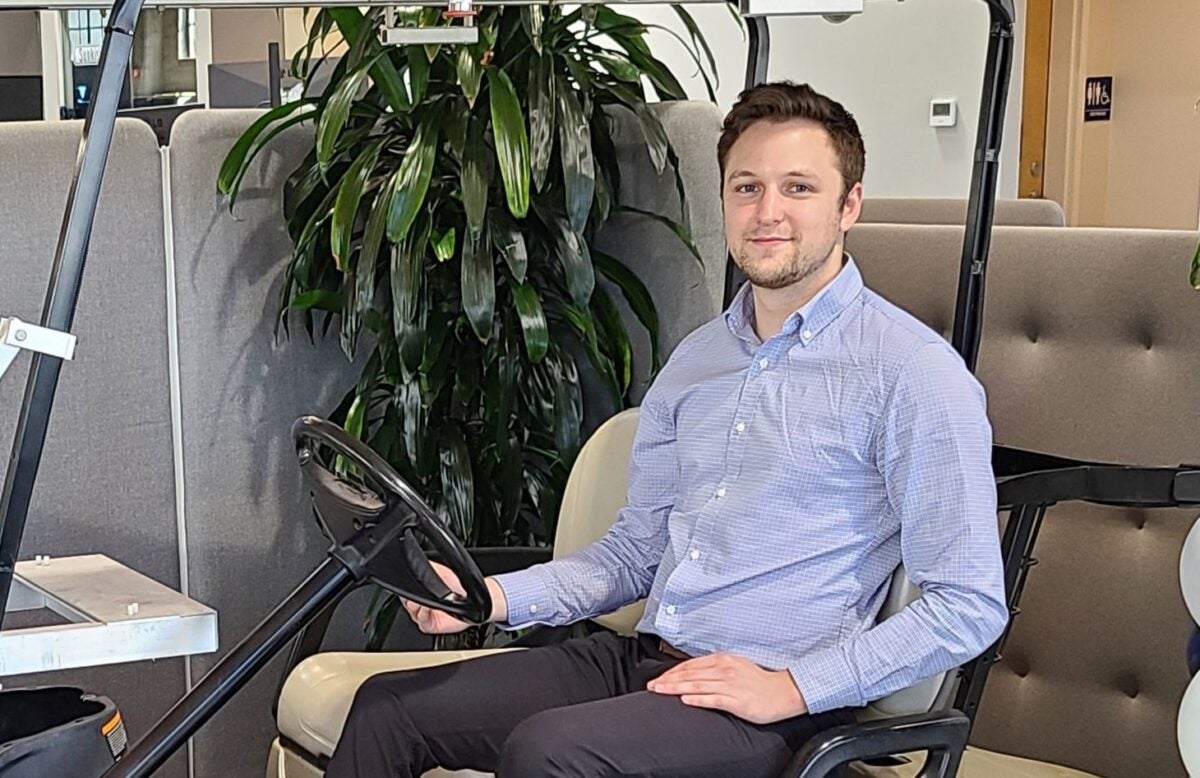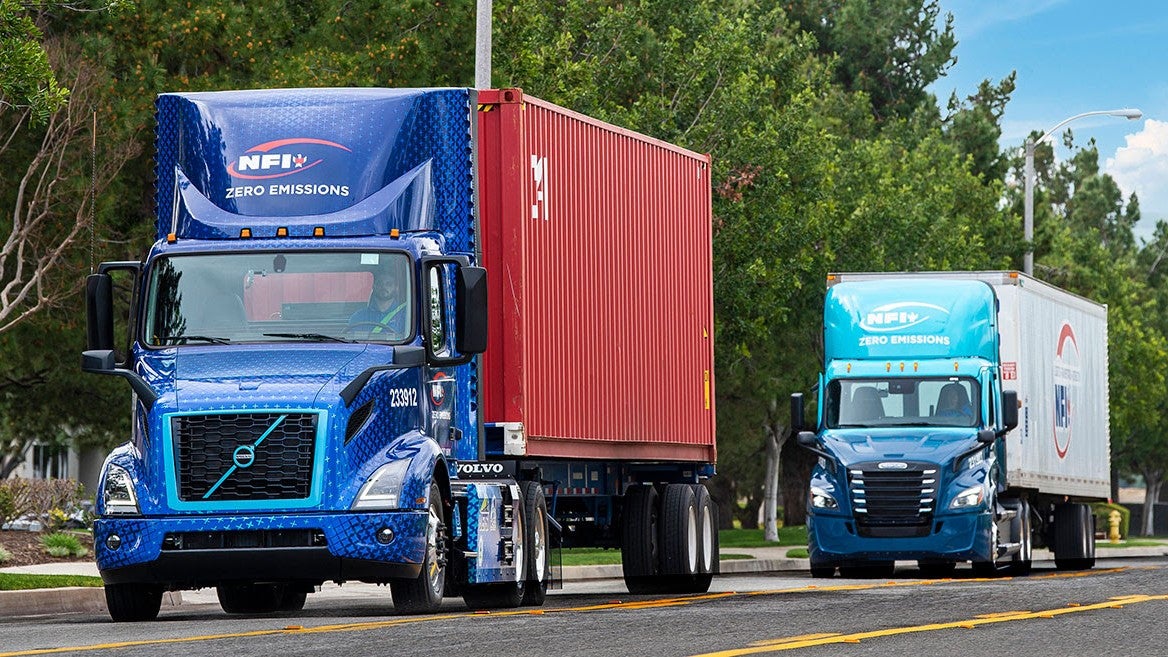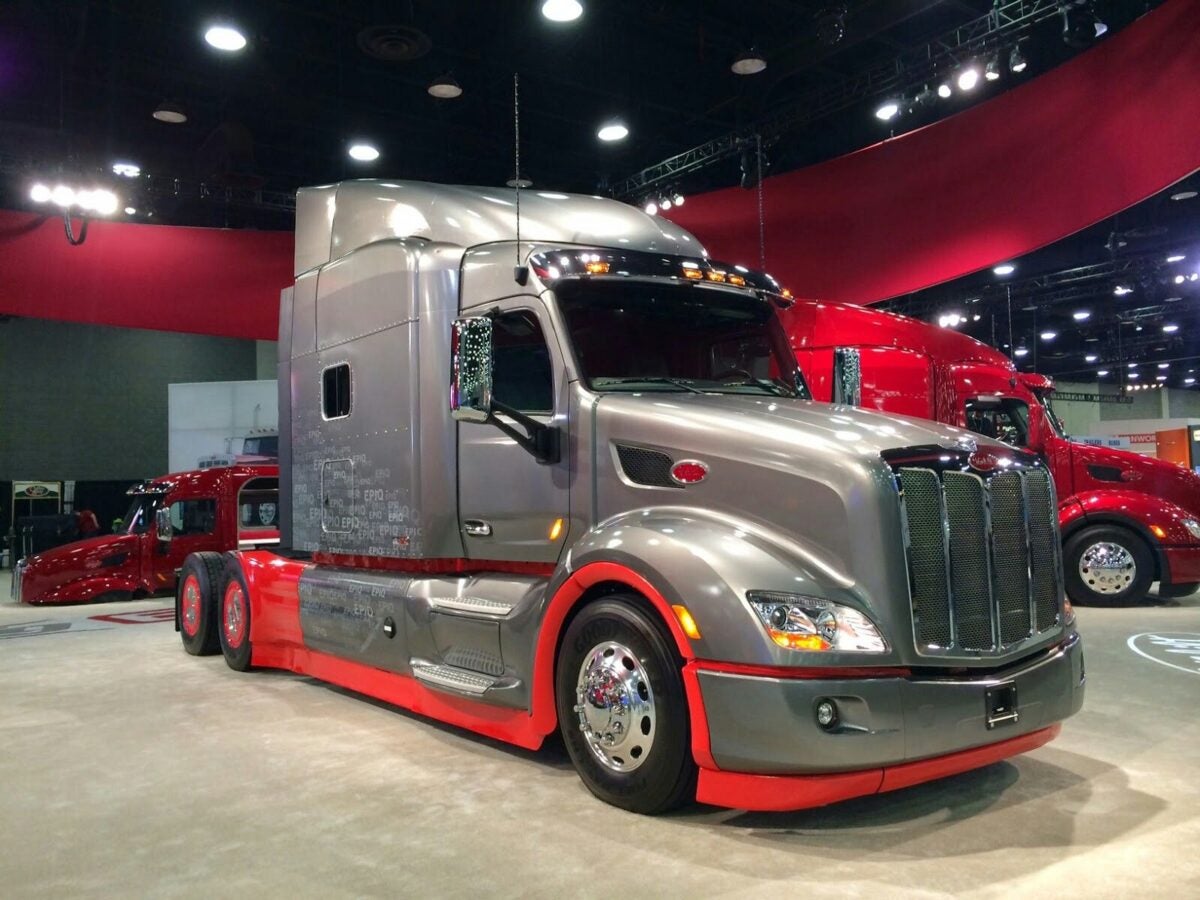Freight News:
Sensor analytics for robotic trucks could provide reverse benefit
Back in February, the predictive analytics software experts at Uptake cut a deal with Daimler Truck to use its data-as-a-service model to tell when any of 160 possible faults and failures could happen. This could result in huge savings for fleets adding the software.
How would this play out for driverless trucks.
“You’re going to see a greater amount of sensor data and information coming out of each one of these trucks,” said Jim Lowell, vice president of technology for Chicago-based Uptake. “They’re looking at the environment more and they’re looking at themselves more and so you’ve got more to work with.”
That doesn’t mean it is going to be easy.
“There’s probably like 80% overlap, but there’s going to be things in the autonomous trucks that aren’t in the existing trucks,” Lowell said. “Servos and controllers to actually operate the vehicle and probably a host of other things and electronics and so on and sensors.”
Ah, sensors. Autonomous trucks are laden with them. While the data collected on their performance is rich and deep, there are not enough trucks to build a database to mine.
“I can tell you sensor failures on a large fleet, because I can look at thousands of trucks over dozens of years, and I can say with accuracy what’s going on,” Lowell said.
A reverse effect from sensors?
All those sensors, however, could impact nonautonomous trucks.
“It might be interesting to see if autonomous trucks don’t have some kind of a reverse effect where [fleets] start saying, ‘I want more sensors on my nonautonomous trucks because they really help,’” Lowell said.
That already is happening with advanced driver assistance systems like Detroit Assurance 5.0 from Daimler Truck and Wingman Fusion safety software from supplier Bendix.
Lowell also wonders about the eventual convergence of electric and autonomous trucks.

“You’re still going to see vendors cooperating to build vehicles,” he said. “What will change is that there’s a small amount of new technology that’s required in order for an autonomous truck to operate. There may be some things related to the driver like: ‘Do I need an air conditioning system on a truck that doesn’t have a driver?’”
Volvo CampX: Part deux
Volvo Group is expanding its CampX incubator and early-stage startup company support to include financial technology — or fintech.
“We have a tremendous opportunity to cultivate new, disruptive innovations that will not only speed up the transition to sustainable, fossil-free transport, but also create value for our customers and the Volvo Group,” Allen Atchley, Volvo Financial Services senior vice president of strategy and innovation, said in a news release.
As the captive finance arm of the Volvo Group, Volvo Financial Services provides financial services including the Gold package required for purchasers of the VNR Electric Class 8 trucks.
CampX opportunities exist for insurance tech, or insurtech, which has launched several startups seeking to make insurance products more dynamic and easier to access.
Winding down at Embark
Whether autonomous trucking software developer Embark Trucks will survive is an open question. But it won’t look anything like the company that conducted the first cross-country heavy-duty autonomous drive in 2018.
Co-founder Brandon Moak has left the company, the second senior leader to depart since Embark suddenly announced in March that it was laying off 70% of its workforce. It was unable to raise new capital in a market in which lenders are looking for profitability over promise.

Embark had none of the former and loads of the latter.
Moak had worked with co-founder Alex Rodrigues since their college days in Canada. He operated mostly in the background as chief technology officer to Rodrigues, who was the face of the company. Both are barely in their late 20s. Moak held 42.5% of Embark’s Class B shares prior to a 1:20 reverse stock split in August. Rodrigues had 57.5%.
Also this week, The Drive reported that Embark is auctioning off most of its trucks, equipment and office furnishings from its San Francisco headquarters.
NFI gets 15 of its electric trucks from JETSI
NFI Industries, among the early players in Class 8 electric truck testing, is now scaling the use of battery-electric trucks. It took delivery of 15 of an eventually 50 heavily subsidized tractors through the Joint Electric Truck Scaling Initiative (JETSI) project.
NFI eventually will deploy and operate 30 electric Freightliner eCascadias and 20 Volvo VNR Electric trucks from its Ontario, California, warehouse facility to support its dedicated port drayage services for customers spanning from manufacturing to retail.
The Camden, New Jersey-based logistics company participated in early fleet testing with Daimler Truck and Volvo Trucks North America, helping to run up more than 1 million miles of real-world electric miles.
“By the end of this year, we will have 100 Class 8 battery-electric trucks dedicated to port drayage, bringing cleaner air to the communities in which we operate,” NFI CEO Sid Brown said in a news release.

The California Air Resources Board (CARB) and the California Energy Commission (CEC) are paying most of the JETSI program’s $27 million cost. The money comes from CARB’s California Climate Investments Initiative and the CEC’s Clean Transportation Program. The South Coast Air Quality Management District (SCAQMD) is contributing $5.43 million.
Multimodal transportation and logistics provider Schneider is getting the other 50 eCascadias from the JETSI program. The first ones were part of Frito-Lay North America’s first-ever third-party electric vehicle shipment. The PepsiCo subsidiary distinguishes the Schneider effort from its purchase of Tesla Semi electric trucks, 36 of which were shown this week.
Briefly noted …
Not to be forgotten in the ongoing Coke versus Pepsi war, Volvo Trucks North America said Coca-Cola Canada Bottling Ltd. is acquiring six Volvo VNR Electric trucks as part of a pilot program to deliver soft drinks in the Greater Montreal Area. The six trucks are the first Class 8 battery-electric trucks in Coke Canada’s fleet of 650 heavy-duty vehicles.
Swedish all-electric startup Volta Trucks will show its Class-7 Zero design-verification prototype at the Advanced Clean Transportation Expo in Anaheim, California, in May. Volta will officially enter the U.S. market this year with a series of zero-emissions medium-duty Class 6 and 7 trucks known as the Volta Zero. U.S.-spec production vehicles are due in 2024.
A peek at the future?
Peterbilt is going to reveal an updated version of the truck currently sold as the Model 389 in Texas in May, rechristened as the Model 589. Is this it?

That’s it for this week. Thanks for reading. Click here to get Truck Tech via email on Fridays. And tune into Truck Tech on FreightWavesTV on Wednesday at 4 p.m. EDT. Next week’s scheduled guest next week is autonomous technology veteran Chris Urmson, co-founder and CEO of Aurora Innovation.
The post Sensor analytics for robotic trucks could provide reverse benefit appeared first on FreightWaves.
Source: freightwaves - Sensor analytics for robotic trucks could provide reverse benefit
Editor: Alan Adler